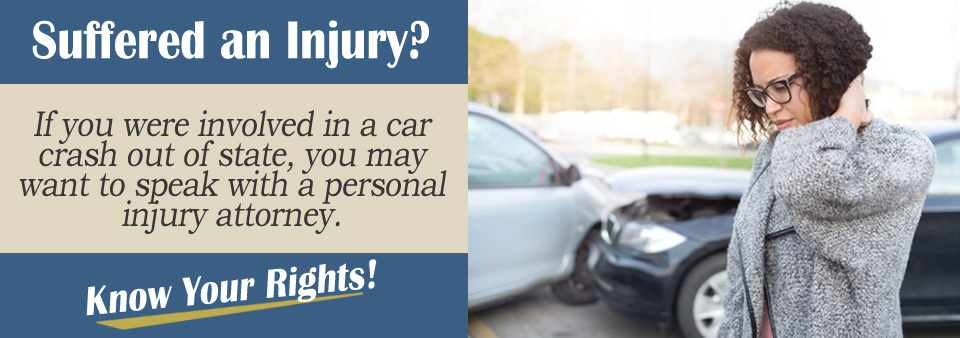If you have been involved in a car crash out of state, your auto insurance policy should cover most damages. If you suffer damages that aren't covered by your insurance policy, you might be able to recover damages by filing a personal injury claim.
However, you should be aware that the laws in the state where the crash occurred will be the laws that apply.
There are several different kinds of damages you can suffer from a car accident, such as medical expenses, lost wages, pain and suffering, property damages, permanent disfigurement, loss of future earnings, loss of enjoyment of life, and any other damages. Damages can vary depending on the severity of the car accident.
Follow Proper Procedures After A Crash
Anytime you are in a car crash, you should call the police so an accident report can be filed. They will investigate the crash to determine what happened. You should then seek medical care right away.
Some injuries might not seem to be as serious initially, but the symptoms could worsen within a few hours or days. It is always better to be examined by a medical professional so any injuries can be promptly and properly addressed.
Regardless of which state you travel to, your own auto insurance will cover you. Consult with your insurance agent if you have any questions regarding your coverage.
The Different Kinds of Damages
Of course, if you are in a car crash your vehicle has suffered damages. You should get written estimates for repairing it back to its original condition. If you have to buy any parts or have repairs done to make your vehicle operable, keep those receipts.
You will also need the tow bill and any rental car receipts to help with negotiations. Take photos of the damage if possible. If you are in a state that has lower minimum coverage requirements and the other party was at fault and only had the minimum required insurance, you might have to file a claim with your own insurance company.

Maintaining Documentation And Evidence
Keep copies of any medical bills and medical records. Document your time off work and your total lost wages. Also, get in writing from your physician any details about any future medical care that might be required as a result of your injuries.
This might include physical therapy or rehabilitation services or any future surgical intervention that might be necessary. If you have suffered injuries that led to medical expenses, you might be eligible for compensation for pain and suffering.
Maintain documentation, photographs, receipts, and bills to support your damages and to be used in negotiating a claim. Documentation is the key in showing the damages that resulted from the car crash out of state.
Remember, state laws regarding insurance and auto accidents can differ significantly from one state to another, so you must be proactive and keep accurate records. You will need to show the exact losses and how they impacted your life after the crash.
Filing a Personal Injury Claim
If you were in a car crash out of state, you may still be eligible to file a claim with your own insurance company or the insurer of the other driver. Filing a claim with your own insurance company might be tricky because laws do vary from one state to another.
The entire process can vary significantly because of the variations in state laws and how insurance is handled in different states. To learn more about whether you are eligible to file a claim, you should consult with a personal injury attorney who is familiar with the laws regarding out of state car crashes.
Remember, the state where the crash occurred has a statute of limitations that apply to filing a claim to recover damages. Don't wait until it is too late to proceed with a claim or you might miss your opportunity to recover damages.